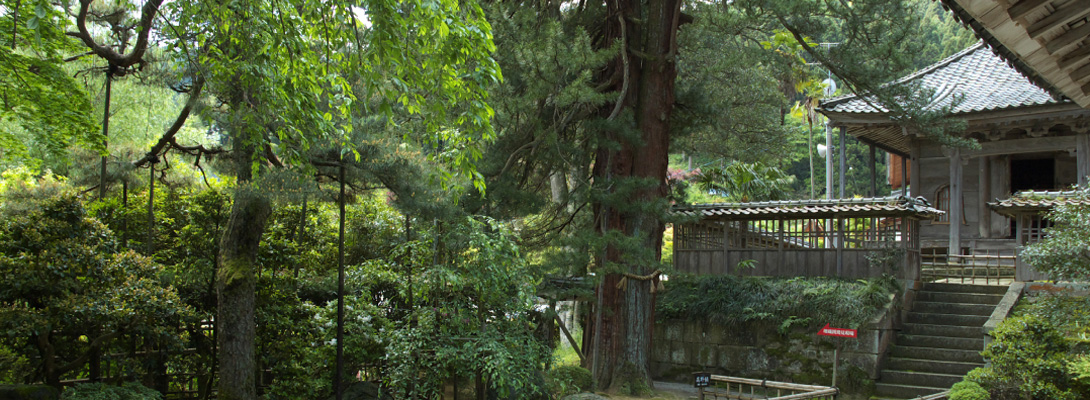
Temple and shrines

Daianzenji Temple
It is a historical Zen Buddhist temple built in 1658 by the fourth lord of the Fukui Domain, Mitsumichi Matsudaira. Hundreds of treasures preserved as cultural assets are made available to the public for viewing. Behind the main hall is Senjojiki, the mausoleum of the ruling Matsudaira clan. Its grounds are made of 1,360 pieces of Fukui’s famous Shakudani stones.

- 【Address】
- 21-4 Tanotani-cho, Fukui City
- 【Time】
- 9:00-17:00 (last entry at 16:30)
- 【Holiday】
- None (does not include lectures)
- 【Fee】
- Adults ¥500; College Students ¥400;
Junior and Senior High School Students ¥300;
Elementary School Students ¥200;
10% Discount for groups of 30 or more
- 【Phone】
- 0776-59-1014
- 【FAX】
- 0776-59-1874

Asuwa Shrine
Asuwa Shrine, located on Mt. Asuwa, can be found in the middle of Fukui City. Founded over 1500 years ago, it is the oldest shrine in Echizen (Fukui) history. It is popular among people who pray for conception, smooth childbirth, construction safety, and protection against evil or misfortune. In addition, it is popular for its Takao maple & weeping cherry trees on the premises, which are registered as natural treasures.
- 【Address】
- 1-8-25 Asuwa, Fukui City
- 【Hours】
- Prayer Reception 9:00-17:00
- 【Holiday】
- None
- 【Fee】
- Free worship (Prayer ¥5000+)
- 【Phone】
- 0776-36-0287
- 【FAX】
- 0776-36-0843

Keya Kurotatsu Shrine
The guardian deity of Kuzuryu River, which flows through the city, is enshrined here. The shrine was built for peace in Japan and for protection of the Japanese people. It is a popular power spot for harnessing power and wisdom to ward off evil with the help of the god Ryujin. It is also the only shrine that survived the Fukui air raid and subsequent earthquake.
- 【Address】
- 3-8-1 Keya, Fukui City
- 【Hours】
- Prayer Reception 9:00-16:30
- 【Holiday】
- None
- 【Fee】
- Free worship (Prayer ¥5000+)
- 【Phone】
- 0776-36-7800
- 【FAX】
- 0776-36-2951

Zuigenji Temple
This family temple was built for the former feudal lord of the Fukui Domain, Yoshinori Matsudaira, and his mother, Koshoin. The main hall and the Shoin building were relocated from Fukui Castle’s inner citadel. They are the only existing remains of the castle and are now prefecturaly Designated Important Cultural Property. It is also known as the Temple of Hagi, so every September, people visit to see the Japanese clover in full bloom.
- 【Address】
- 5-10-17 Asuwa, Fukui City,
- 【Hours】
- Must inquire
- 【Holiday】
- Irregular
- 【Fee】
- Free worship
- 【Phone】
- 0776-35-1868
- 【FAX】
- 0776-35-1868
- 【WEB】
- http://www.zuigenji.com/








